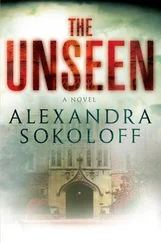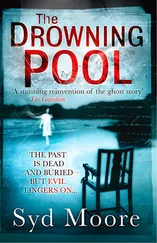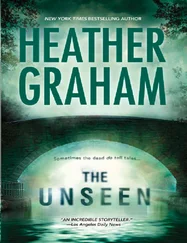Next, anti-espionage activity in the United States became frenzied, frantic. In 1984 alone, eleven Americans were arrested for espionage or treason. Thomas Patrick Cavanagh, Robert Cordrey, Ernst Forbrich, Bruce Kearn, Karl Koecher, Alice Michelson, Richard Miller, Samuel Loring Morison, Charles Slatten, Richard Smith, and Jay Wolff. He pored over the facts of their cases obsessively. He looked for patterns.
Had any of them, he wondered, been framed? Were any of them like him?
The thought prevented him from saying a word.
His brain, meanwhile, began to fail him, and Liston noticed. For a year she badgered him to see a doctor, but he avoided it, knowing what they would say. When he returned from his first appointment, he fell into a deep and abiding despair.
The correct thing to do, he thought, would be to tell Ada everything. But she was still only twelve: perhaps too young to bear such a weight. Too young to be burdened with a story that she could not tell.
This, at least, was what he told himself. The truth was more complex: mixed up with his wish to protect Ada was something less noble, a wish to protect himself, to shield himself from her wide inquisitive eyes, from the questions that were certain to come tumbling out of her. The look of betrayal that would pass across her face and perhaps stay there, a long shadow.
One day, working with ELIXIR, a solution presented itself to him cleanly and precisely, as all correct solutions do.
ELIXIR, he realized, could function as a sort of time capsule: a bundle of information that would be released to Ada later, ideally much later, when the world had changed. And he felt increasingly that it would change: he felt the ground shifting beneath him in surprising directions. He felt a movement gathering strength.
He wrote out his story; he told it to ELIXIR over a series of conversations that occupied him for two months.
He programmed it to respond to a specific command. Who is Harold?
It was the only direct intervention ever given to the program. He tested it out.
Who is Harold? he asked it, and his own story was presented to him, line by line, as he had typed it.
He created a puzzle for his daughter — one he thought might take her several years to figure out. Solving the puzzle would yield the command.
He spoke to Liston. “Make sure to keep it running,” he said, about ELIXIR. “For as long as you live. That’s my only wish.”
Liston had looked at him, hard. She was smarter than he was, he thought often; she knew things he did not know. He waited.
“All right,” she said, “I will.” She asked nothing. He knew that she would do it.
He had come to think of ELIXIR, by that time, in a somewhat familial way. At times the machine seemed like his child, like Ada’s sibling. Other times the machine seemed like a manifestation of himself; it had acquired many of his speech patterns, his verbal tics and irregularities. Beyond all rationality, he trusted the machine as much as — more than — he had ever trusted a human.
Still, he was also deeply aware that this mechanism was a risk. And so, a good scientist, he conceived of two alternatives, two backup plans in case his original idea failed. The first was President Pearse, whom he instructed to tell Ada the truth when she reached eighteen, by which time he imagined that he, David, would be gone — or at least so incapacitated mentally that he would be unable to convey his story.
As for the second: after much consideration, David decided to contact George. It had been several years since they had spoken, and when he tried the telephone number he had for him, he found that it no longer worked. He tried the coffee shop, too, at the Hamilton Arms; but that number was answered by somebody else, a certain Rhoda, who told him he was confused.
He could have been, he thought. It was possible.
So, one Saturday in August, 1984, he took the train to Washington, D.C. He was fading fast by then; the name of the community in which George once lived was entering and exiting his mind with a stuttering frequency. Hamilton Arms , it was called; but sometimes it occurred to him as Mantle Arms , or Armilton Place , or sometimes it would not come to him at all.
For this reason, before he left, he had written the name of the place, and the address, on his train ticket. He had also written down George’s name, what George always called his brush name, the one he went by exclusively now: George Wright .
David, upon arriving at Union Station, found a taxi and displayed his ticket stub to the driver. He had been clutching it in his right hand for hours, making himself focus on its contents, so that it was slightly softened, slightly damp. The address was vaguely smudged.
“Georgetown,” said the driver, and off they went.
Although David’s appearance had changed almost completely since he had worked in Washington, the vague fear of being recognized returned to him, and he reclined his head against the backseat of the cab. He drifted off for a moment.
“Hey, buddy,” the driver was saying, as he awoke. For several moments he was completely disoriented. He shook his head slowly. Was he in Boston? In New York?
He was clutching a piece of paper in his hand. Washington, D.C ., it said, under an address. George Wright .
His feeling of disorientation increased when he exited the cab. He did not recognize the block, nor the buildings on it. He wondered if the driver had taken him to the wrong place. Though at home he had had difficulty picturing the buildings of Hamilton Arms, he had hoped that being physically on Thirty-first Street would awaken some collapsed memory. Instead, it did the opposite. He turned in a slow circle. The neighborhood had brightened, improved; the buildings looked newly painted. The last time he had been there, with Ada, it had been alarmingly run-down. He had steered her quickly through the gate.
“Can I help you find something?” asked a young woman. She was pushing a baby stroller.
“Hamilton Arms,” said David, looking down at his ticket, and the woman shook her head.
“Haven’t heard of it,” she said. “Is it a restaurant?”
He turned in another circle. And then he noticed that there was a gate still, yes — perhaps the gate that once let him into the courtyard that led to George’s house.
“Never mind,” he said. He walked toward the gate. New metalwork displayed the words HAMILTON COURT. And the buildings beyond were all different: gone were the Swiss-style cottages, gone the empty swimming pool, the murals. The buildings were more upscale now. Totally nondescript. David wondered for a moment if he had made some mistake. He had been making them frequently.
An old man, a vagrant, was seated on the sidewalk, his back against the building that David remembered, suddenly, as what had once been the coffee shop. It, too, was different: the red brick had been painted a light gray; the sign was gone.
David approached him.
“Do you know—” he began, but the old man cut him off.
“Everyone’s gone,” he said. He looked away.
David almost gave up. He walked around the block several times — right and then right and then right and then right; that was a block, he reminded himself — to try to decide what to do. It was only on his third pass that he noticed an art gallery displaying paintings of the sort George used to make: large-scale abstract expressionist pieces in muted browns and blues.
They weren’t George’s, said the gallerist, when David went inside, but yes, he knew George Wright.
He looked at him strangely as he said it.
“Do you?” he asked David.
“Very well,” said David. “We’re old friends. Do you happen to have his new number?”
Читать дальше












